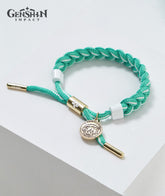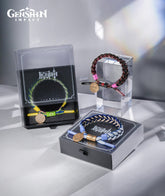Natlan's 9 New Characters Cultural Research
It is remarkable how nearly every country in the Third World outside of Asia is represented in Natlan's cultural archetypes.

Now is the time to start looking more closely at these names' cultural roots.
Mavuika: South Island - Māori

Mavuika may be named after the Māori fire deity Mahuika, who is typically depicted as female. She is the wife of Auahitūroa, the god of comets and origin of fire. She gave birth to five children, named after the five fingers of a human hand.
Māui, a Maori cultural figure, is supposed to have deceived Mahuika into giving her fingernails, thereby earning the secret of making fire for mankind.
Similar deities go by the names Mafuike, Mahui'e, or Mahuike in Oceania, the Polynesian area of the Southern Islanders, where they are honored as male fire gods.
Mualani: South Island - Hawaii

Mualani is named after Hawaiʻian High Chiefess and Princess of Koʻolau Mualani.
"Mua" is a positional noun in Hawaiian that can mean elderly, ahead of, first, etc. The term "Lani" means "sky." It might indicate "ahead of the sky" or "aspiring to be above the sky" in this instance.
Kachina: North American original inhabitants

Kachina is likely named after a type of spirit from the beliefs of the Pueblo people.
The Puebloans, or Pueblo peoples, are Native Americans in the Southwestern United States who share common agricultural, material, and religious practices. Pueblo people speak languages from four different language families, and each Pueblo is further divided culturally by kinship systems and agricultural practices, although all cultivate varieties of corn (maize).
They had developed planned villages composed of large terraced buildings, each with many rooms. These apartment-house villages were often constructed on defensive sites: on ledges of massive rock, on flat summits, or on steep-sided mesas, locations that would afford the Puebloans protection from raiding parties originating from the north.
The Ancestral Puebloans are connected to two significant archaeological sites in North America: Mesa Verde in southwest Colorado and Chaco in northwest New Mexico, named World Heritage Sites.
The Hopi, who speak for the Utah-Aztecan language family, are among the many Pueblo tribes that follow kachina worship. In Pueblo culture, kachinas are spiritual beings that represent various real-world spirits or things, such as admired ancestors, elements, places, qualities, and natural phenomena or concepts like the sun, stars, thunderstorms, wind, corn, insects, and many more.
Because there were so many kachinas, the Hopi people gave wooden statues of kachinas to children during kachina ceremonies to help them get acquainted with what a kachina looks like. As a result, kachina dolls became a symbol of Hopi culture.
Kinich: Maya

Kinich is likely named after Kinich Ahau, the Yucatec name of the Maya sun god.
Additionally, in the 16th century, the Maya of the Yucatan Peninsula in Mexico referred to the sun god Kinich Ahau, also known as GodG in ancient codices and believed to be a creation of Itzamna, a significant figure in Mayan mythology.
K'uhul Ajaw: Maya

K'uhul Ajaw means "divine lord" in several Mayan languages. It is a variant of the Maya title Ajaw.
Citlali: Aztec

Citlali is a Mexican given name derived from the Nahuatl word citlalli meaning "star."
Citlalicue, which means "star-skirted" in Aztec mythology, was married to Citlalatonac, and together they created not just the Milky Way and stars but also death and darkness.
Xilonen: Aztec

Xilonen is likely named after one of the titles of the Aztec goddess of agriculture Chicomecōātl.In Aztec mythology, Chicōmecōātl [t͡ʃikoːmeˈkoːaːt͡ɬ] "Seven Serpent" . She is sometimes called "goddess of nourishment", a goddess of plenty and the female aspect of maize.
Chicomecōātl is usually distinguished by being shown carrying ears of maize. She is shown in three different forms:
- As a young girl carrying flowers.
- As a woman who brings death with her embraces.
- As a mother who uses the sun as a shield.
Iansan: Afro-American Traditional Religions - Yoruba

Iansan's name may have been a reference to the orisha Ọya (also known as Ọya-Ìyáńsàn-án, Yansã, or Iansan), a deity in Yoruba mythology as well as Afro-Latin-American traditional religions such as Candomblé or Santería. She is a warrior goddess who governs fire, storms, lightning, hurricanes, death, and rebirth.
Chasca: inca

She may be named after the Incan goddess of the stars, Chasca.
Ch'aska (Morning star; a.k.a. Ch'aska Quyllur) was the goddess of dawn, the twilight and dusk, as well as the goddess of beauty, virgin women and the flowers.
Ororon: Yoruba

Ororon is likely named after Ọlọrun, the supreme deity in the Yoruba religion.
In Yoruba culture, Ọlọrun is credited with creating the universe and all living things. Ọlọrun is frequently perceived as a compassionate entity who protects its creations and is thought to be omnipotent, omniscient, and omnipresent.
Of course, there is also a strong possibility that the name Ororon is named from the Maori language.
In Maori, oro is understood to mean echo or sound; and ron means rain. Combine these and you get Ororon, which means Sound of Thunder. Ororon has the animal characteristics of a bat, he is electro and his kit is based on the Soundwave theme. This gives the name Ororon a high probability of being of Maori origin.
The Maori tribe is a very spiritual tribe and their priests often perform Mana rituals. These behaviors are closely linked to masters of Night wind tribe.
It is worth noting that Ororon's tattoo was also inspired by Maori tribal arm tattoo designs.
(Thank “Alexis” for providing another diversity answer)












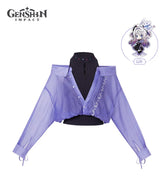

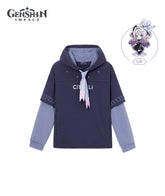

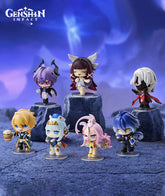

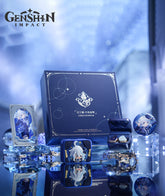
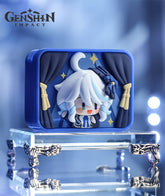
![[Official Merchandise] Genshin Impact Theme Vision Keychain Charm](http://genshinfans.com/cdn/shop/files/ZT01_4ff643a3-f4c7-4e69-949d-97312b5da85d_165x.jpg?v=1722241611)

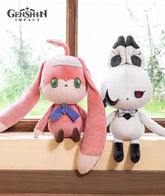
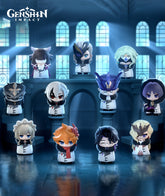
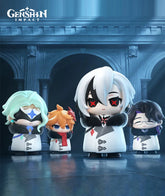
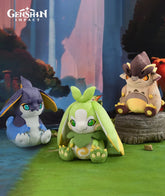
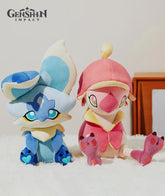
![[Official Merchandise] Wanderer Scaramouche Cat Hanging Plush Toys](http://genshinfans.com/cdn/shop/files/zt-05_165x.jpg?v=1698818423)
![[Official Merchandise] Wanderer Scaramouche Cat Hanging Plush Toys](http://genshinfans.com/cdn/shop/files/zt-06_165x.jpg?v=1698818424)


![[Official Merchandise] Genshin Impact Slime Plush Toys](http://genshinfans.com/cdn/shop/products/ZT06_165x.jpg?v=1691978287)
![[Official Merchandise] Genshin Impact Slime Plush Toys](http://genshinfans.com/cdn/shop/files/ZT02_6137d7a6-4ee1-4a82-9495-4a12b1032ea2_165x.jpg?v=1691977956)
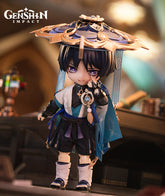
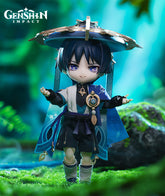
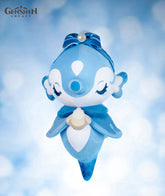
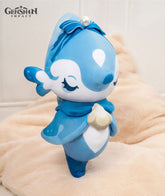
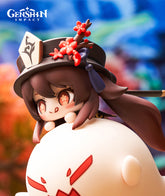
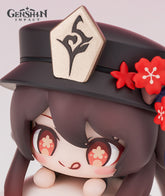
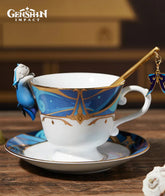
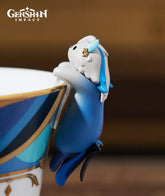
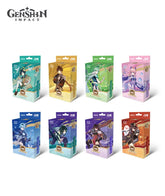
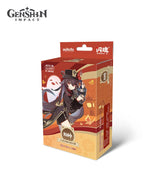
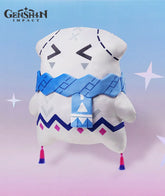

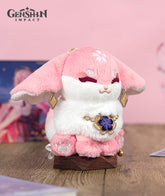
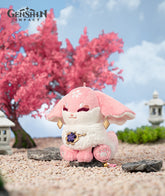

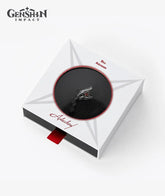
![[Official Merchandise] Arlecchino Impression Afternoon Tea Cup and Saucer Set](http://genshinfans.com/cdn/shop/files/Arlecchino-Impression-Afternoon-Tea-Cup_165x.jpg?v=1714383254)
![[Official Merchandise] Arlecchino Impression Afternoon Tea Cup and Saucer Set](http://genshinfans.com/cdn/shop/files/Arlecchino-Impression-Afternoon-Tea-Cup2_165x.jpg?v=1714383255)
![[Official Merchandise] Kaedehara Kazuha Impression Bracelet](http://genshinfans.com/cdn/shop/files/ZT02_cacb626a-33db-414d-aab1-63e59b0a0ba8_165x.jpg?v=1698747523)
![[Official Merchandise] Kaedehara Kazuha Impression Bracelet](http://genshinfans.com/cdn/shop/files/ZT04_79fecbdd-ac05-4a1a-9488-4814e86eeee1_165x.jpg?v=1698747523)
